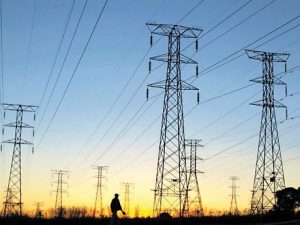The government’s difficult task of closing a deficit of Rs 700 billion.
An enormous electricity surcharge of Rs. 31.60 per unit is calculated by the Ministry.

ISLAMABAD: The energy ministry has come up with a surcharge ranging from Rs2.3 to a staggering Rs31.60 per unit of electricity in order to close a gap of over Rs700 billion that has emerged as a result of poor leadership, unrealistic budgeting, and political decisions to provide exporters and farmers with subsidies.
According to government officials who spoke to The Express Tribune, the largest roadblock facing the 9th review mission of the International Monetary Fund (IMF) is the Rs700 billion deviations from the Circular Debt Reduction Plan 2023.
Due to the potential effects on the government’s support base, no decision has yet been made to raise the prices.
Separately, the Prime Minister Shehbaz Sharif and I spoke on Monday about raising gas prices by more than 100%.
According to the sources, the energy ministry estimated that there was a minimum hole of over Rs700 billion against the annual Circular Debt Reduction Plan agreed with the IMF for the current fiscal, keeping in mind the poor performance of the power sector during the first quarter (July-September) of the current fiscal year.
The sources noted that there had already been a divergence of around Rs400 billion in the first quarter and that the true departure of Rs700 billion may have been substantially larger.
Poor power sector governance, including frequent line losses, low bill recovery, delayed rate increases, and, most importantly, political choices to provide subsidies to exporters and flood-affected farmers, is to blame for the Rs700 billion shortfall.
Unrealistic planning by the finance ministry in June of this year is another significant element that contributed to the enormous imbalance.
Three solutions have been developed by the energy ministry to close this deficit, which is essential if Pakistan is to continue participating in the IMF programme. Giving the additional Rs700 billion in subsidies is the fourth alternative, which, according to one source, would mean that the IMF programme would come to an end.
To collect Rs700 billion for five groups of users, excluding industrialists, the energy ministry has suggested that the government boost electricity costs by Rs31.60 per unit. Commercial, bulk, industrial, other, and general services are among them.
However, a change to the National Electric Power Regulatory Authority (Nepra) Act would be necessary in order to impose the surcharge. According to the sources, in this scenario, the rate for commercial consumers would soar to Rs94 per unit and for industrial consumers to Rs80 per unit.
Along with having negative effects on a sector that was already experiencing negative growth, these possibilities have significant ramifications for the individuals who are struggling with inflation.
A total of Rs2.5 per unit increase is calculated as a result of low bill collection, which at the end of September was just 83% of the entire amount billed, and an additional Rs1.40 per unit as a result of significant line losses, which were 17.4%. Another increase of Rs2.82 per unit will be needed for the upcoming generation cost recovery.
The additional Rs 6 per unit is required merely to cover the Rs 136 billion in K-Electric debt. For the five categories, the cost of the Rs118 billion in subsidised energy provided to exporters is Rs5.28 per unit, and an additional Rs1.25 per unit spike is calculated to recoup the Rs28 billion in agricultural subsidies.
recurring debt
The prime minister oversaw a high-level discussion on the energy industry in the interim. The establishment of a comprehensive plan to manage the circular debt in the oil and gas industries was discussed at the conference. The involved officials were given a directive by the prime minister to minimise the circular debt.
Shehbaz remembered that throughout its term in office from 2013 to 2018, the Pakistan Muslim League-Nawaz (PML-N) administration had almost completely eliminated the circular debt. He was adamant that with consistent work and smart planning, the debt issue could be managed.
Shehbaz further ordered that no further burden should be placed on gas and electricity consumers while also directing the Sui gas distribution firms to increase bill recovery. He stated that it was important to make the mechanism for paying gas and electricity bills efficient.
The federal cabinet would be presented with the energy-saving strategy on Tuesday after the meeting (today). The cabinet meeting has also extended an invitation to the province chief ministers.
Separately, Ishaq Dar, the finance minister, presided over a follow-up meeting on energy sector reforms to discuss workable ideas put forth by the relevant ministries for implementing reforms in the power and gas sectors with a view to bringing efficiency to the system, minimising energy waste, and relieving the burden on the general public.










































